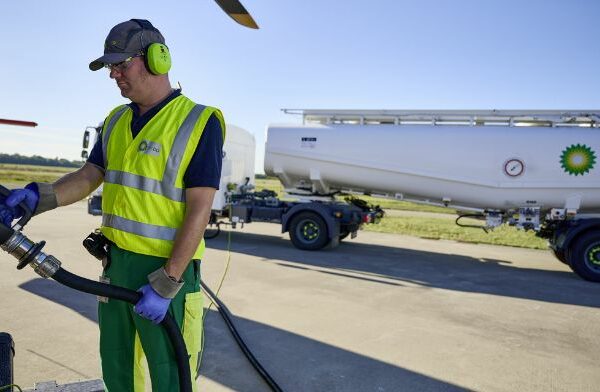Reaffirming their global commitment to net-zero emissions the airport industry took centre stage at COP26’s Climate Action Hub on Wednesday 10 November.
ACI Europe Director General, Olivier Jankovec, underlined the tangible climate actions of airports globally in addressing their own carbon emissions while also supporting broader decarbonisation of the air transport sector.
He highlighted how the airport industry has long championed the sector’s need to chart a course to net zero, with a first ACI Europe carbon management resolution in Europe in 2008 followed by the launch of the Airport Carbon Accreditation programme 12 years ago. Then, in 2019 Europe’s airports committed to a net-zero CO2 airport emissions goal by 2050 at the latest.
Earlier this year, the global Net Zero 2050 commitment further demonstrated the industry’s long-term carbon goal, which will be accompanied by concrete guidance and transparent reporting on progress.
In Europe, these tangible, transparent actions come together in the recently announced Repository of Roadmaps and accompanying guidance, and this will be soon be followed by a worldwide Airport Action Plans Initiative. These individual plans and guidance have the clearly stated aim of aiding all airports to set out on the path to net zero, with an increasing body of evidence-based success to reference. The results to date speak for themselves. Ninety four European airports are on track to achieve net-zero carbon emissions by 2030, including 10 airports that have already reached net-zero.
Derek Provan, CEO of AGS Airports, which owns Aberdeen, Glasgow and Southampton Airports in the UK, used the COP26 platform to announce plans for a solar farm at Glasgow Airport. It will provide the airport with the capability to generate enough power for the entire airport campus and neighbouring businesses. This is equivalent to powering 20% of homes in the city of Glasgow, which equates to approximately 52,000 households.
Provan also pointed to new aircraft energy systems and to the example of Scottish carrier Loganair, part of a consortium taking forward plans to trial a zero carbon, hydrogen-fuel-cell-powered flying demonstrator by September 2022. If trials are successful, this could see the world’s first hydrogen-powered passenger flights take off in Orkney in late 2023. This, enthused Jankovec, highlights the importance of regional airports and short-haul flights as test-beds for radically new aircraft technologies. “It’s a policy we’ve long advocated for,” said Jankovec. It is also in line with the ambition set by the European aviation industry through Destination 2050, which sees all flights departing EU/ UK/ EFTA reach net-zero carbon emissions by 2050.
“Aviation is a force for good,” pointed out Provan. “Through our sustainability strategy we have set out how AGS will balance the undoubted economic and social benefits of aviation with our climate change responsibilities.
“As a group, we are committed to building on our carbon neutrality status by achieving net zero by the mid-2030s and like the wider industry, we have set out a clear plan on how we will meet that goal. All of our electricity is already from 100% renewable sources, however, the creation of the solar farm at Glasgow Airport will allow us to become self-sustaining by generating enough power for both the airport and our neighbours.”
Showcasing some of the most innovative and ecologically robust airport initiatives, Jankovec highlighted Vancouver International Airport as having aspirations to be the greenest airport in the world. He also picked out Delhi Indira Gandhi International Airport as being the first to reach the new Airport Carbon Accreditation Level 4+ in Asia-Pacific. It’s planned taxiway will save 55,000 tonnes of CO2 annually. Meanwhile he cited Aeroport de la Reunion as having groundbreaking architectural designs that override the need for air conditioning by harnessing wind power and Aeropuerto Ecologico de Galapagos as the world’s first ecological airport drawing 100% of its energy from renewable sources.
“COP26 represents a turning point, a now-or-never. Not for rhetoric and promises, but for actions,” said Jankovec. “These actions should be tangible, transparent, measurable and progressive. I am incredibly proud to stand here at COP and speak on behalf of an industry that faces some of the greatest challenges to decarbonise. Yet at the same time, it shows some of the greatest ambition. Because flying is not the enemy, carbon is. Air travel is part of our economic, cultural and human experience and it’s incumbent upon us all to ensure that is continued sustainably. The airport industry leads the way in transforming our sector into one which will be truly fit for purpose for future generations.”






